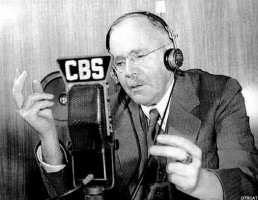“A Game of Botticelli” (1954)
Reading John Updike’s Complete Stories
This series is a re-reading of John Updike’s short stories in the wake of the publication of “The Collected Early Stories” and “The Collected Later Stories,” the twin-volume set by the Library of America (2013). A comprehensive table of the complete stories with links to each story summary appears below. The commentaries include the Maple and Bech stories, most of which are excluded from the Library of America edition. Contact the editor for questions, debates or corrections. A hyperlinked list of the compete stories appears below.
![]()
[“A Game of Botticelli” was written in Oxford in 1954, when Updike was a Knox Fellow at the Ruskin School of Drawing and Fine Art. The New Yorker rejected it. It was published as “Homage to Paul Klee; or, A Game of Botticelli,” in the Fall 1963 issue of The Liberal Context, a glossy magazine of the Unitarian Universalist youth movement that ceased publication in 1969. The story was never collected in book form until it appeared in the Library of America’s Collected Early Stories.]
John Updike should not be blamed for the lameness of “A Game of Botticelli.” He must have seen it. He never collected it in book form, not even in his 2003 Early Stories or, as he was wont to do with pieces that didn’t warrant collection in short story books, as one of those can’t-place-it-anywhere-else fillers for his omnibus essay collections.
Botticelli was a popular game in the 1950s and 60s. It was the precursor to such games as Trivial Pursuit. It required players to guess the name of a famous person based on yes or no answers to biographical details about that person.
The story’s only autobiographical value is that it reflects glimmers of Updike’s courtship of Mary Pennington, who would become his wife. In the story, it’s Sam and Martha (Mary’s name, ironically, becoming that of Updike’s second wife). She’s a graduate student, she’s in a higher class than Sam, who hails from somewhere in the Midwest. They meet up with two friends. “At eleven, the girls turned the sofas into their beds, retired to the bathroom, reappeared in wool nighties, and flew like birds to beneath the covers. The beds were on opposite sides of the room. Chastely George and Sam sat down by the mountainous knees of their loves, and in a darkness to which their eyes became accustomed all four played Botticelli.” That’s as good as the story gets, in style and anticipation. It’s all downhill from there, though this forgotten story gives a glob of genesis to that endless, painful scene in Couples, one of the least realized of the novel–one of those scenes critics must have had in mind when they said that the book could have used a Max Perkins on speed).

H.V. Kaltenborn? Well, I can say this much to give this story some value: it taught me who H.V. Kaltenborn was, and in a strange way the story retroactively–because Updike did not intend this at all–takes its place alongside many others Updike would write about the evanescence of life, of lives lived, of marks made and entirely lost to history’s ether–
Life’s but a walking shadow
A poor player that struts and frets his hour
Upon the stage, and then is heard no more.
So go the lines in Macbeth’s soliloquy, to be at the center of “Tomorrow and Tomorrow and So Forth,” the story Updike would write immediately after this one. Here was one of America’s best known personalities in radio history, a Rush Limbaugh-Paul Harvey type before radio blowhards revived radio’s fortunes in the 1980s. “From the moment he delivered his first radio news analysis in April, 1922, to his retirement from radio and television in September, 1955,” his New York Times obituary read on June 15, 1965–he’d died at 86 the previous day of a heart attack–“Mr. Kaltenborn confidently gave the public his view on the meaning of the news.”
In the story, he is revealed when one of the participants asks: “Are you a right-wing radio commentator with a German accent that Harry Truman imitated at a banquet after he won the 1948 election?”
“Yes.” Another participants admits never to have heard of him. Not alone. You can read more about him here and here.
John Updike: The Complete Stories (Click on Links for Summaries and Analyses)
| Title | |||
|---|---|---|---|
| Ace In the Hole | |||
| Friends From Philadelphia | |||
| A Game of Botticelli | |||
| Tomorrow and Tomorrow and So Forth | |||
| Dentistry and Doubt | |||
| Snowing in Greenwich Village (The Maples) | |||
| The Kid's Whistling | |||
| Toward Evening | |||
| Who Made Yellow Roses Yellow | |||
| Wife-wooing (The Maples) | |||
| Giving Blood (The Maples) | |||
| Twin Beds in Rome (The Maples) | |||
| The Bulgarian Poetess (Bech) | |||
| Bech in Rumania | |||
| Bech Takes Pot Luck | |||
| Rich in Russia (Bech) | |||
| Bech Swings? | |||
| Bech Panics | |||
| Bech Enters Heaven | |||
| The Gun Shop | |||
| Believers | |||
| How to Love America and Leave It at the Same Time | |||
| Nevada | |||
| Sons | |||
| Daughter, Last Glimpse Of | |||
| Ethiopia | |||
| Transaction | |||
| Augustine's Concubine | |||






